- be_ixf; php_sdk; php_sdk_1.4.18
- 14 ms
- iy_2025; im_07; id_12; ih_04; imh_46; i_epoch:1.75232078546E+12
- ixf-compiler; ixf-compiler_1.0.0.0
- py_2025; pm_06; pd_10; ph_02; pmh_48; p_epoch:1.74954893724E+12
- link-block; link-block_link-block; bodystr
- pn_tstr:Tue Jun 10 02:48:57 PST 2025; pn_epoch:1.74954893724E+12
- 0 ms
- be_ixf; php_sdk; php_sdk_1.4.18
- https://sou.edu/academics/wildlife-safari-sou-honors-college-experience/
- https://sou.edu/academics/wildlife-safari-sou-honors-college-experience/
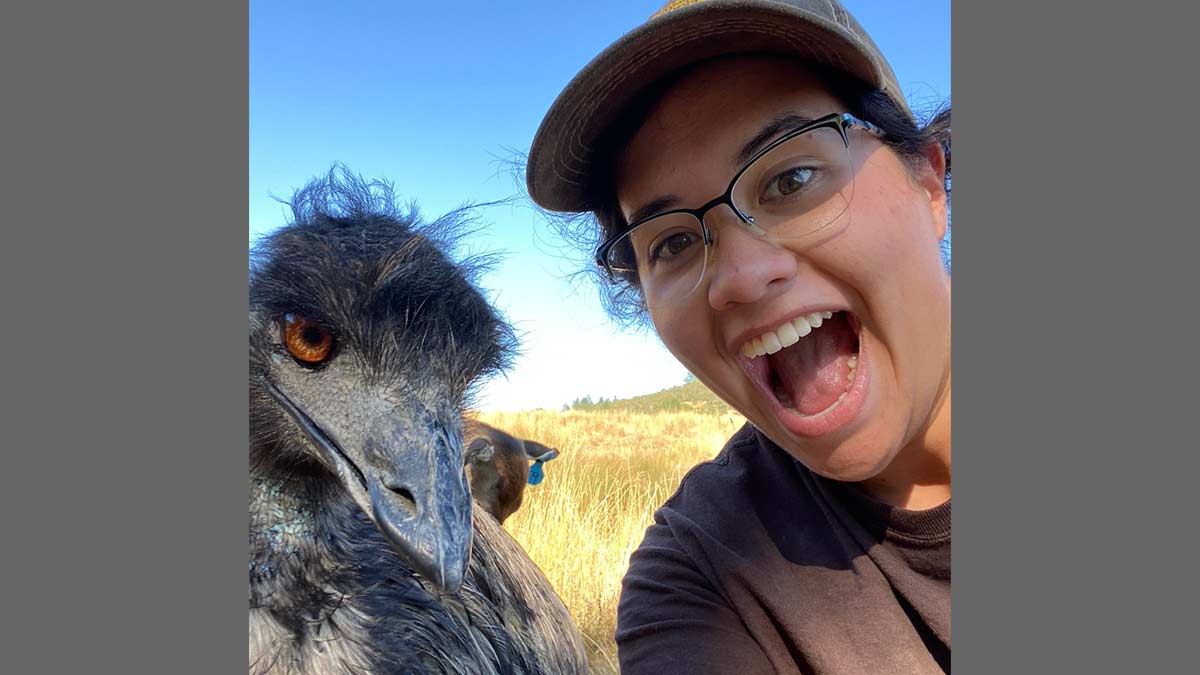
Wildlife Safari Summer Internship: An Honors College Substantive Educational Experience
By Sophia Reggianni
In the summer of 2022, I was an Ungulate Intern Keeper at the Wildlife Safari Zoo in Winston, Oregon. Presently, I am a senior at Southern Oregon University studying Biology with a Native American Studies minor and in the Honors College. My Biology degree has an emphasis on zoology and ecology. Ever since I was young, I have been fascinated by the natural world, especially animals. I longed to work in a zoo and make connections with animals and promote their conservation to the public. This internship was especially helpful in gaining experience about what it’s like to work in a zoo and interact with a variety of animals.
I began my internship search during the winter break of 2021 knowing I wanted an internship in the summer of ‘22. Because of how the SOU academic year worked, the time frame gave me about a month of searching and applying to many zoos around the country before deadlines came or passed. I had no idea how competitive applying for and receiving an internship would be. And it wasn’t because of a lack of trying or qualifications. I had a polished resume that included leadership experience from the Honors College and the support of my Honors College professors as references, as well as other community service and leadership activities. Out of the six zoos I applied to, just one got back to me for an interview, (I bet you can guess which one!).
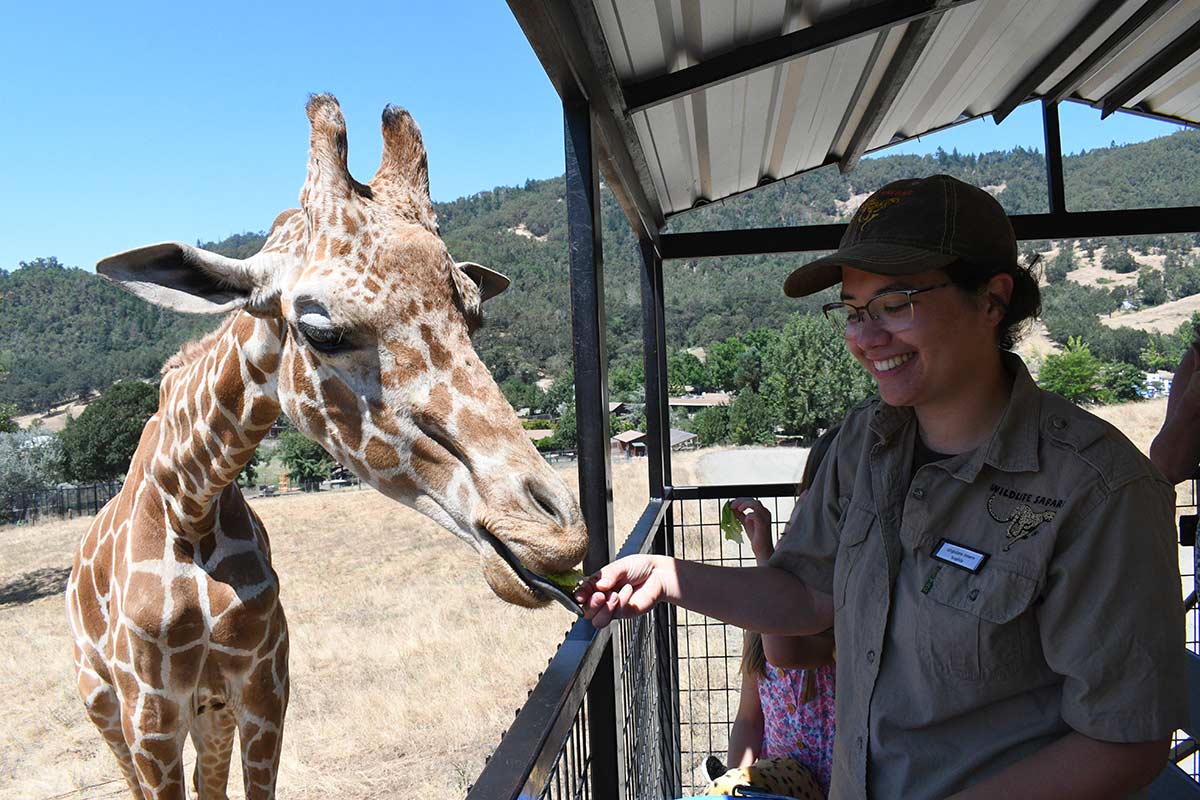
Located in the southern region of Oregon, about three hours south of Portland, the Wildlife Safari is not a traditional zoo. Wildlife Safari is an accredited zoo by the Association of Zoos and Aquariums which assures that this facility has a high standard of cleanliness, humane care, and health for all its animals. What’s unique about this place is that it spans over 60 acres and cares for over 600 animals. It even includes a drive-through park where visitors can see the animals right up close to their cars. Most of the animals roam free throughout the park (except the predators). Because the animals are truly wild and not domesticated in any way, guests must remain in their cars. There is also a Village area that is like a traditional zoo where guests walk through and see animals in an exhibit.
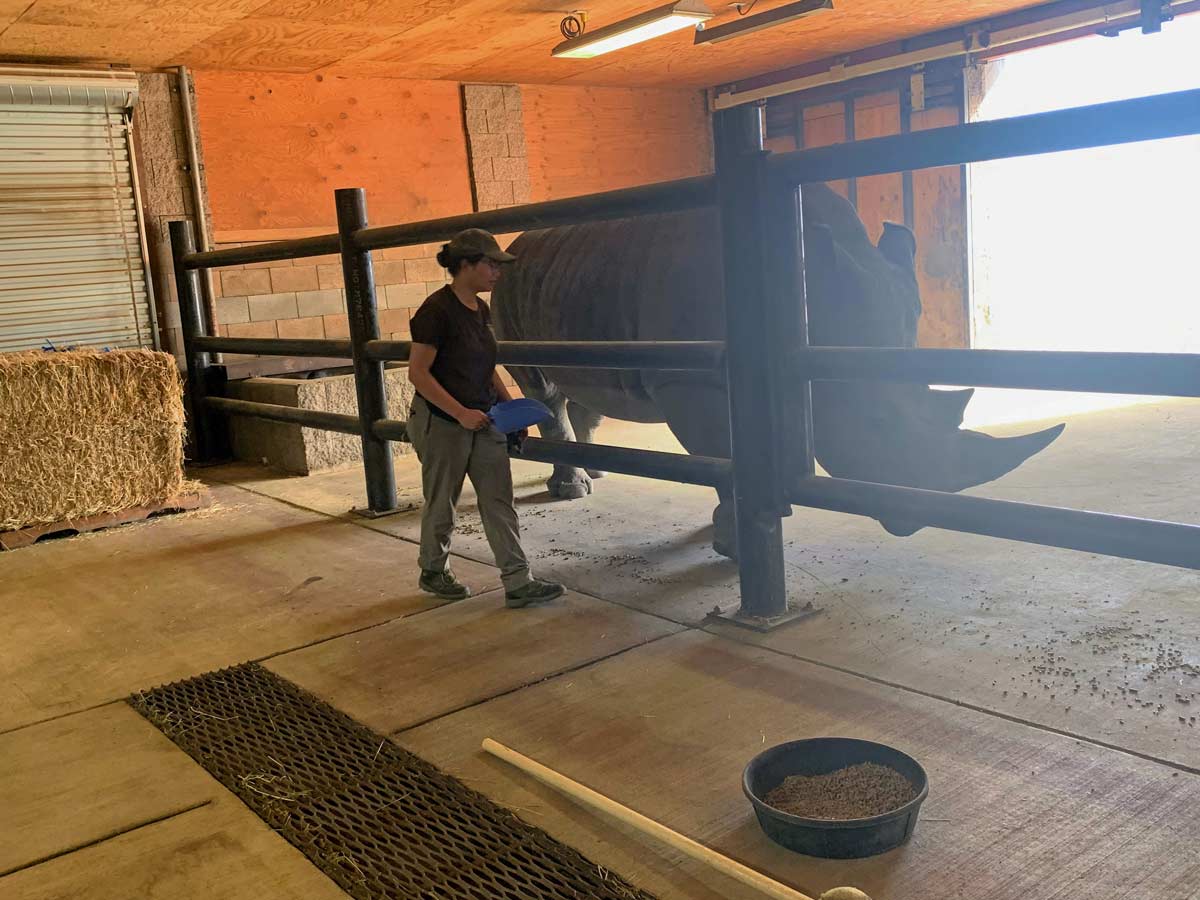
Wildlife Safari divides its animals into different departments when it comes to caring for and feeding them. These are Carnivores, Ungulates, Elephants, Village, and Education. I applied to be an Ungulate intern because that department takes care of the largest groups of animals in physical size and variety. The word “ungulate” means a hooved animal, so all our creatures (minus a few bird species) were rather large and herbivores. Since all of our department’s animals were in the drive-through section of the park, they took care of themselves mostly since grass and water are naturally provided. It is the largest ungulates that I got to work with closely and train: rhinos, hippos, and giraffes. As an intern, I was trained to do basically everything a supervising keeper did. There was a checklist that the keepers would sign off on after I had demonstrated to be proficient at that task. And there were many tasks that included diet prepping, cleaning stalls, training of a rhino, hippos, and giraffes, driving an ATV, and assisting with medical procedures.
This internship was 12 weeks long and was unpaid. Interns had the same schedule as the keepers which was four 10 hours days per week. On our days off, we had the ability to cross-train in another department. I cross-trained twice, once in Village and once in the Carnivore department. Combining all the late hours and cross-training, I estimate to have worked approximately 400 hours this past summer. I also stayed at an Intern House. It cost $300 a month but it was an actual house that had all the amenities, and it was more affordable than an Airbnb for three months. Many other interns stayed there too and were from all over the country. At one point, there were 12 interns staying in the house. Many were around my age, majoring in Biology, and whose end goal was to work in some capacity with animals. Staying at the Intern House taught me how to live and get along with people I had never met. I made wonderful connections with them and it was a very valuable experience for me.
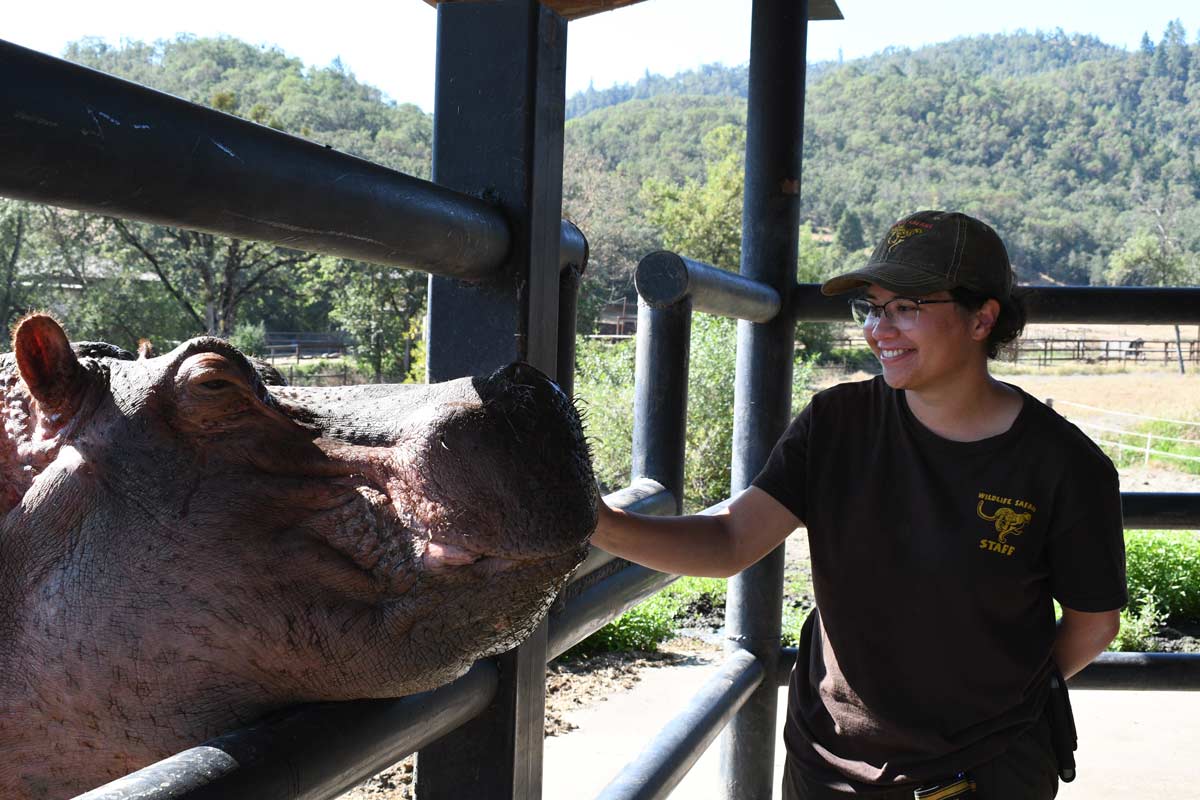
During my time at Wildlife Safari I learned that while I loved being a zookeeper, it’s not sustainable long-term. It is incredibly demanding on the body and you would wear down long before you’d reach retirement age. The keepers’ mean age was around 30. There weren’t too many keepers over 40. What I also noticed when I asked keepers for advice on higher education is that only a handful went to graduate school. All the keepers were intelligent people whose background was a bachelor’s degree in some sort of biology or zoology, but many never felt the want or need to go to graduate school. Additionally, zookeepers’ wages and not much to sustain a family. I found out that the pay rate for this job is incredibly low. In Oregon, one can work at a fast-food place and get paid more per hour compared to the hourly pay of the keepers which is just above minimum wage for the state. I was quite shocked when I learned of this due to the amount of work and care they do for the animals and the amount of education it takes to have the job. The higher-paying zookeeping jobs are reserved for managers or highly specialized keepers at big-name zoos and those require at least two years of paid experience before one can apply and be considered. This internship made me more determined to pursue a higher education degree where I can still work with animals in some way, even though it may not be the way I had envisioned myself at a zoo but have a sustainable income. I also learned that I can do more for animals with conservation and research by going to graduate school.
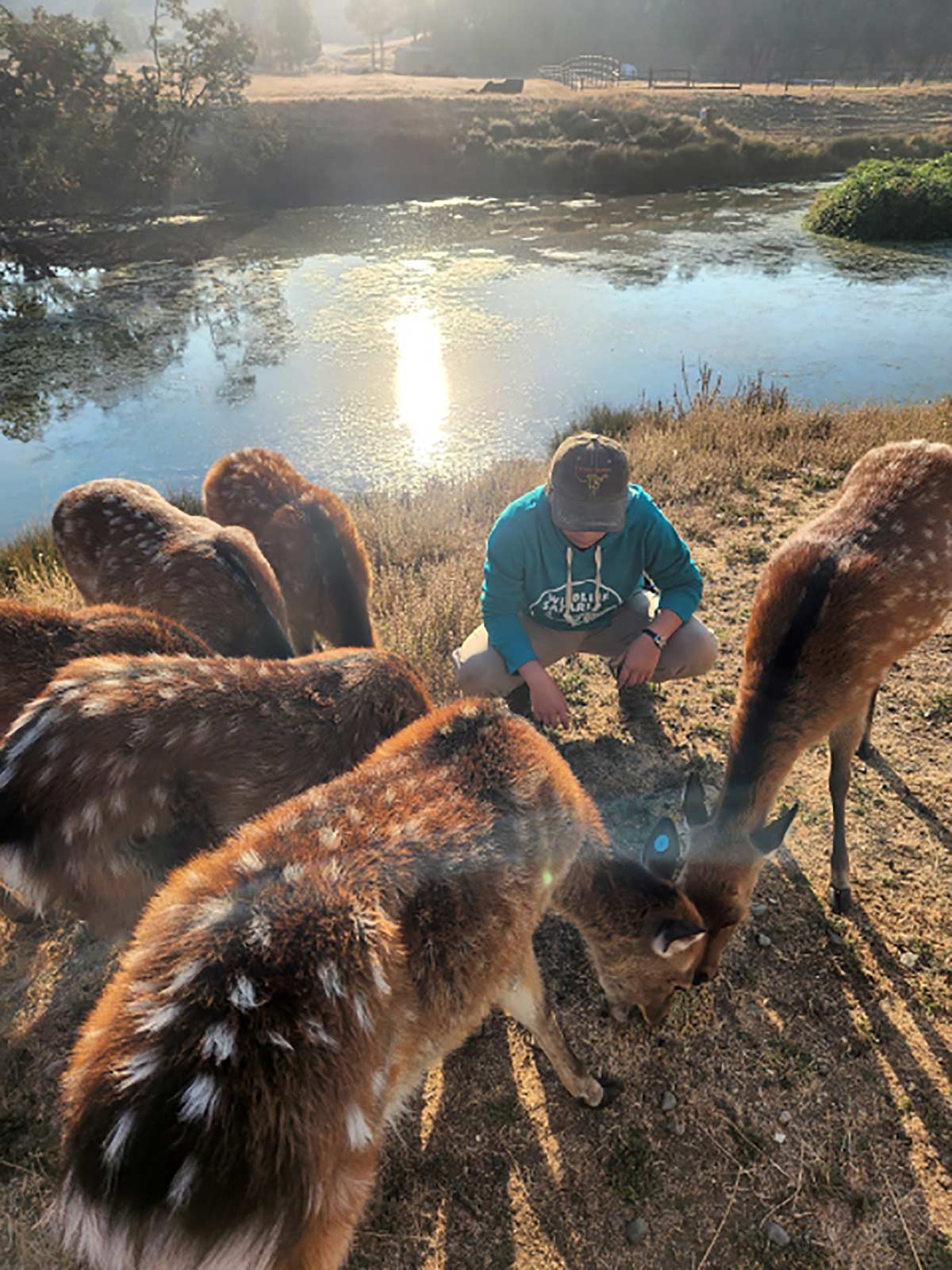
The Wildlife Safari Internship was an amazing experience, one that I don’t take for granted. There were both positives and negatives during those 12 weeks but I grew as an individual. I learned different supervising styles and how I would run things differently if I were in a management position. I practiced patience and showed kindness even with people I disagreed with. I also learned more about myself as a student and as a person who is passionate about animals. The animals were the reason I loved going to Wildlife Safari every day. I didn’t mind the physical work too much if I knew I was making the animals happy. They made me smile and laugh and continue to do so when I look back through the photos I took and the memories they evoke. For fellow Honors College students debating on whether to do an internship, I say go for it. You discover and learn just as much about yourself as a person and student by finding out what you want to pursue as a career as compared to what you don’t.


